Ecological Journeys -Initiatives for a Sustainable Society-
Contents
- Management Philosophy of TOYO NUT
- Ecological Nut Circle
- For a sustainable society
- Ethical consumption
- Initiatives for the Rainforest Alliance certification program
- Initiatives for Sustainable Palm Oil
- Initiatives for Organic JAS Certification
- Initiatives for Forest Conservation
- Initiatives for reduce trans fatty acid content
- Other Initiatives

Management Philosophy of TOYO NUT
In April 2013, our company established its management philosophy, "Nut make the World Go Round".






Ecological Nut Circle
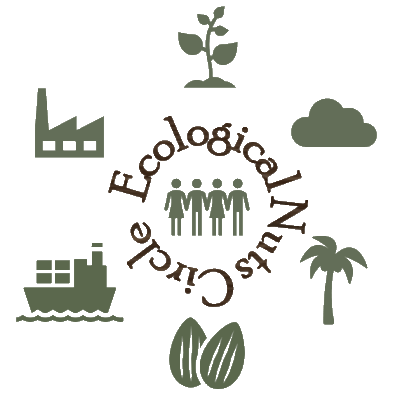
The TOYO NUT proposed its current management philosophy in 2013.
The message is that even a single nut has the power to move the world.
In order to harvest the nuts, the trees are carefully cultivated over time.
Nuts, said to be the oldest food known to mankind, are a blessing from nature and the earth.
Eventually, when the annual harvest time arrives, the production area comes alive.
We are grateful for the blessings of nature and harvest the fruit.
Nuts harvested in the production area become a valuable export resource for each country.
To grow a tree is to grow the earth.
Protecting forest ecosystems, conserving water, and preserving biodiversity.
The nut tree has been living in harmony with humans since its birth, creating a sustainable society.
Of course, I will continue to do so.

For a sustainable society
The 2030 Agenda for Sustainable Development, adopted by the United Nations in 2015, set 17 goals as Sustainable Development Goals (SDGs).
The "sustainable society" that the SDGs are aiming for is almost the same as the goal of our management philosophy, which we established in 2013.
Activities conducted in line with our management philosophy are directly contributing to the achievement of the SDGs goals.
In addition, we agree with the principles of the OECD Due Diligence Guidance for Responsible Business Conduct, and we are promoting initiatives for a sustainable society, including human rights due diligence.


Ethical consumption
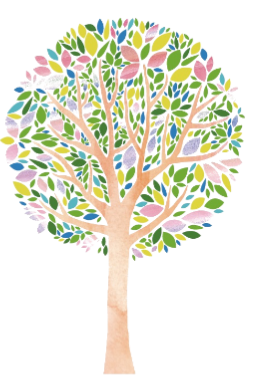
What is ethics?
If you look up a dictionary, you can see that ethics has almost the same meaning as morality and is the "path that people should follow".
It can be said that it is a standard of judgment of good and evil in social life, such as trying to rescue someone who is sick on the street.
Ethical consumption refers to the consumption of products and services that give consideration to human rights, local communities and the environment.
This is an action that each person can naturally take part in in their daily life.
That consumption, for example, reduces poverty in the world.
To reduce the destruction of the global environment.
Reduce child and slave labor.
A single person can't be a big help, but a group of people can be a big help.
And while it's not easy to think and act on "change something," it's relatively easy for everyone to act on "change something we consume."
By choosing our company products, our company hopes to help change society and the world.

Initiatives for the Rainforest Alliance certification program
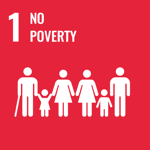
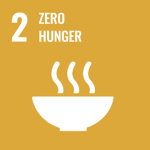
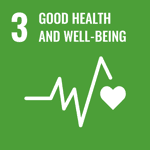
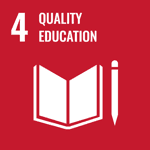

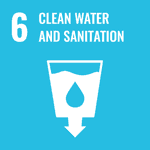
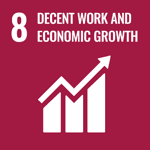
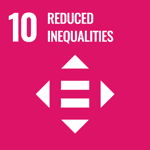
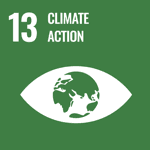
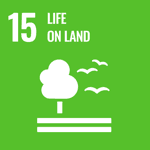
The Rainforest Alliance is an international non-profit organization founded in 1987 with the goal of creating a better future for people and nature.
Farms that meet a rigorous standard for sustainable agriculture, such as protecting ecosystems and soils and improving the environment for workers, are awarded the Rainforest Alliance Certification.
Products carrying the Rainforest Alliance seal means that they are sourced from Rainforest Alliance Certified farms.
We are developing products using Rainforest Alliance certified macadamia nuts.
Our Rainforest Alliance Certified macadamia nuts are grown in properly managed farms and factories located along the southern coast of Guatemala.

Initiatives for Sustainable Palm Oil

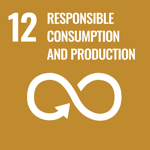


One of the methods of roasting (heating) nuts is to fry them in oil. TOYO NUT CO.,LTD uses palm oil, a vegetable oil obtained from oil palm fruits, as the frying oil.
Oil palm is cultivated on a large scale mainly in Indonesia and Malaysia, but due to the development of large-scale farms, there are problems such as environmental and ecosystem destruction due to logging of tropical forests and human rights violations of farm workers.
The Roundtable on Sustainable Palm Oil (RSPO) is a non-profit organization founded in 2004 with the goal of promoting the production and use of sustainable palm oil.
RSPO members include palm oil producers and processors, manufacturers, retailers, environmental NGOs, and many other companies and organizations.
We purchase RSPO book-and-claim system certification credits equivalent to the entire amount of palm oil we use through RSPO Palm Trace, a certification trading program that contributes to more sustainable palm oil production.
By purchasing certification credits equivalent to the entire amount of palm oil we use, the credits are used for sustainable palm oil production, including proper management of farms and workers.

Initiatives for Organic JAS Certification






The Organic JAS mark is used after the certified business operator has been examined by a third party to determine whether it conforms to the JAS (Japanese Agricultural Standards).
There are many countries other than Japan that have organic certification systems. Organic certified products from 20 countries, including the United States and France, imported into Japan without using post-harvest can be handled as Organic JAS certified products in Japan.
Our company sells organic raisins imported from the United States and Australia as certified Organic JAS products.
The organic standards in the United States are almost the same as those in Japan, and they are grown in fields where chemical pesticides and fertilizers have not been used for more than three years. Processed foods require that 95% or more of the ingredients be organic.
Organic agriculture maintains healthy and affluent land through the circulation of natural resources without the excessive use of chemical pesticides and fertilizers.
Our organic raisins are made from grapes grown by nature, without chemical pesticides or fertilizers.

Initiatives for Forest Conservation






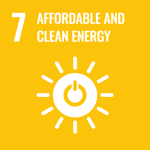



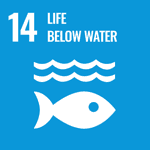

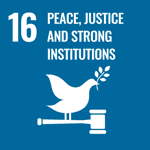
FSC (Forest Stewardship Council) is an international forest management certification body, a non-profit organization founded in 1993.
PEFC(Programme for the Endorsement of Forest Certification) is an international forest management certification body, a non-profit organization founded in 1999.
Members of the FSC and PEFC include forestry cooperatives, timber companies, forestry managers, and environmental groups.
The certification system is designed to identify wood products that do not have a significant impact on the environment or society, and to prevent excessive or illegal logging, forced labor, and child labor.
By using FSC® and PEFC certified paper for product packaging and in-house PPC paper, we prevent deforestation caused by illegal logging and contribute to sustainable forest management.
We also contribute to the planting of more than 300 trees a year through our afforestation program.
In addition, we are also working to reduce the consumption of virgin pulp by introducing toilet paper made of 100% recycled paper from used railroad tickets.
The FSC and PEFC certifications discourage excessive deforestation, forced labor and child labor, and ensure sustainable forest management.
Initiatives for reduce trans fatty acid content

The World Health Organization (WHO) aims to eradicate trans fatty acids worldwide by 2023 because they are formed during the hydrogenation process that coagulates vegetable oils and can have adverse health effects.
Partially Hydrogenated Oils(PHOs) are used to make margarine, shortening, frying oil, bread, and sweets. In the past, our company also used PHOs for frying nuts.
It has been pointed out that trans fatty acids increase LDL cholesterol (bad cholesterol) and decrease HDL cholesterol (good cholesterol) in the blood due to long-term excessive intake, and as a result, it is said to increase the risk of coronary heart disease such as arteriosclerosis.
Our company contributes to the realization of healthy lifestyles by reducing the use of PHOs, which cause health problems, and by reducing the content of trans fats in its products.

Other Initiatives
Investment in CO2 reduction



In addition to introducing LED lighting and energy-saving air-conditioning systems, we are working to reduce CO2 emissions through joint projects with sales warehouses and transport companies.
Conducting compliance study sessions


By holding multilingual study sessions, we create opportunities for education regardless of race and provide opportunities to learn about compliance.
Extension of shorter working hours



By extending the shorter working hours to a maximum of six years, we are striving to make it possible for employees to balance work and family life.

Contribution to urban development
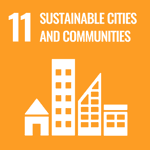
In addition to participating in community activities in the Fukae area, where our head office is located, we donated a drone to Higashinada High School, which is in the area, in order to speed up response and situation confirmation in the event of a disaster.
Reduction of food residues



Food residues generated in the manufacturing process are reused as animal feed, and food waste is reduced by using food banks for products with few remaining expiration dates.

